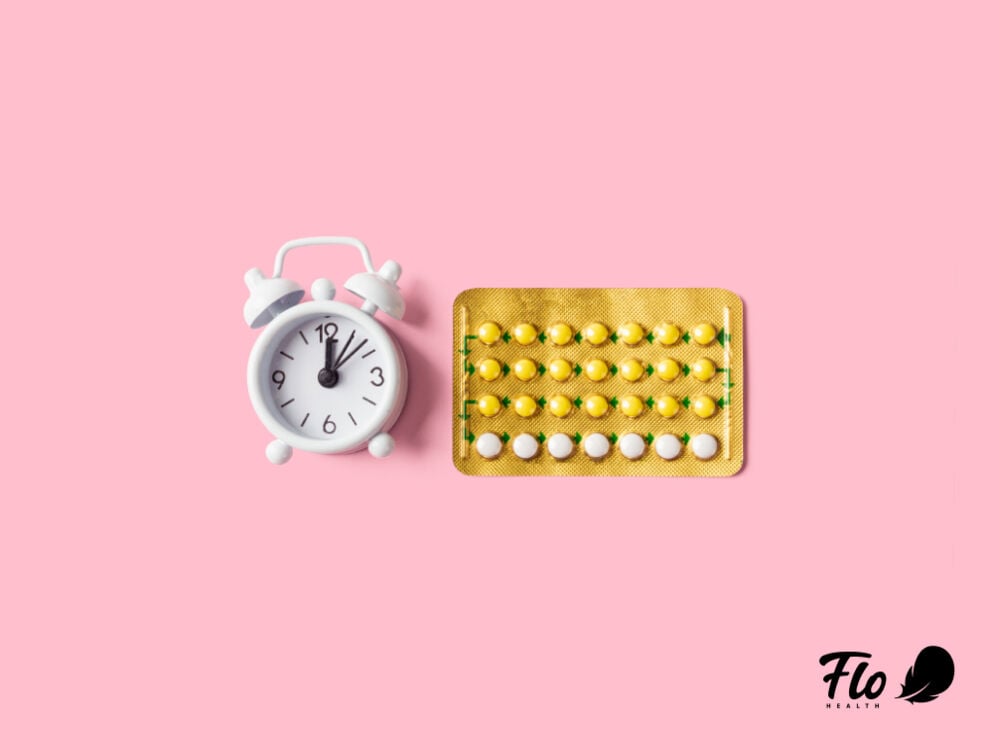There are so many factors that can make your period change dates or stop entirely, including added stress at work or switching to a new contraceptive pill. Here’s what you need to know.
-
Tracking cycle
-
Getting pregnant
-
Pregnancy
-
Help Center
-
Flo for Partners
-
Anonymous Mode
-
Flo app reviews
-
Flo Premium New
-
Secret Chats New
-
Symptom Checker New
-
Your cycle
-
Health 360°
-
Getting pregnant
-
Pregnancy
-
Being a mom
-
LGBTQ+
-
Quizzes
-
Ovulation calculator
-
hCG calculator
-
Pregnancy test calculator
-
Menstrual cycle calculator
-
Period calculator
-
Implantation calculator
-
Pregnancy weeks to months calculator
-
Pregnancy due date calculator
-
IVF and FET due date calculator
-
Due date calculator by ultrasound
-
Medical Affairs
-
Science & Research
-
Pass It On Project New
-
Privacy Portal
-
Press Center
-
Flo Accuracy
-
Careers
-
Contact Us
Why Do Periods Change Dates?


Every piece of content at Flo Health adheres to the highest editorial standards for language, style, and medical accuracy. To learn what we do to deliver the best health and lifestyle insights to you, check out our content review principles.
It’s estimated that from our first period to when we experience menopause, women and people who menstruate have around 450 periods. That equates to approximately 6 years of bleeding. And, while you may become accustomed to the length of your menstrual cycle, how heavily you bleed, and your preferred menstrual products, periods are anything but predictable.
The slightest change in your reproductive hormone levels and physical well-being can mean you have two periods in one month, none at all, or more cycle changes going forward. Most of the time, this is nothing to worry about, but it’s worth speaking to your health care professional to put your mind at ease.
We asked the experts to explain the most common reasons why periods change dates, how contraception can affect your cycle and when you should see a doctor.

Why do periods change dates: What is your menstrual cycle?
Your menstrual cycle refers to the process your body goes through each month after you experience puberty. No two periods are the same. If you reach out to friends, you’ll notice that their cycles may be longer or shorter than yours. You’ll probably also notice that after you have a baby or as you make the transition into menopause, your menstrual cycle may change.
The average menstrual cycle for a woman or person with a uterus who doesn’t use hormonal contraception lasts around 21 to 35 days. This marks the total number of days between the start of one period and the beginning of your next one.
Day one of your menstrual cycle coincides with the first day of your period. It’s normal for periods to last anywhere from two days to a week, and during this time, the levels of your reproductive hormones, estrogen and progesterone, are low.
After your period ends (around days five to seven of your cycle), your estrogen levels begin to rise as your body prepares to release an egg. This is called ovulation and it generally marks the midpoint in your cycle.
Once ovulation has taken place, your progesterone levels rise to prepare your body for a potential pregnancy, even if the egg hasn’t been fertilized. The lining of your uterus (the endometrium) thickens so it can support a fertilized egg, should one happen to embed itself in the lining in a process called “implantation.”
If an egg isn’t fertilized or if a fertilized egg doesn’t implant, the uterine lining breaks down, and your period begins. This marks the beginning of a new menstrual cycle.
“Your menstrual cycle is a really delicate system, and each hormone will impact when you bleed, your symptoms, and when you ovulate,” Dr. Welsh explains.
Why do periods change dates: How does contraception affect your menstrual cycle?
Your menstrual cycle ticks along as your body releases different levels of estrogen and progesterone. If something interrupts the natural flow of these hormones, your period may change dates. This includes hormonal contraception.
“Changes in contraception can really impact the length of your menstrual cycle,” Dr. Welch says. “If you’ve just started on the hormonal contraceptive pill or you’ve made a change to your pill, then this can have a huge impact on your hormones. Similarly, if you’ve just had an implant or coil (IUD) fitted, then you may notice a change in your cycle.”
Hormonal birth control introduces different levels of progesterone, estrogen, or a combination of the two into your body. A study published in the National Library of Medicine highlighted that this could make periods become irregular, cause ongoing spotting, or stop periods altogether. In fact, the NHS lists contraceptive pills and intrauterine devices (IUDs) as two common causes of irregular periods.
Dr. Welsh says pregnancy, miscarriage, and the morning-after pill can change your hormone levels, too, which can have a direct impact on your menstrual cycle.
While a missed period isn’t always an indicator of pregnancy, “one of the most common reasons for a missed period (if there’s a chance semen entered your vagina) is pregnancy. So, I would always recommend doing a pregnancy test.”
She continues: “The morning-after pill or an abortion can change your cycle due to changes in your hormone levels. Similarly, if you experience a miscarriage, your period may change dates. Someone might not know they’re pregnant and then have a much heavier period that’s late. This is indicative of a miscarriage.”
If you notice early symptoms of a miscarriage, including bleeding, stomach pain, or cramping, seek medical treatment immediately.
Miscarriage can be heartbreaking, so remember you’re not alone. There are a number of support services available, including Tommy’s, The Miscarriage Association, March of Dimes, and Petals.

Why do periods change dates: How is your mental health linked to your menstrual cycle?
Hormonal contraception and pregnancy aren’t the only reasons why your hormones may fluctuate during your menstrual cycle. Your mental health can also have a direct impact on how long your menstrual cycle is — and even the symptoms you experience.
“The most important concept for people to realize is that the control of periods resides in the brain, not in the ovaries,” explains Dr. Mary Jane Minkin, OB-GYN and Clinical Professor of Obstetrics and Gynecology at Yale.
“The ovaries get their marching orders from the hypothalamus at the base of the brain. It sends messages to the pituitary gland, which, in turn, stimulates the ovaries to make estrogen and progesterone. This is a tricky balance.”
The stress hormone, cortisol, will increase in your body if you feel stressed over a sustained period of time. Your body releases this hormone as part of the fight-or-flight response — our instinctive, physiological response to threats both real (a hungry tiger) and perceived (thinking about delivering a speech).
Research has linked higher cortisol levels to irregular bleeding or periods stopping altogether. This happens because all the extra cortisol throws off your hypothalamus (the part of your brain that controls the release of hormones), which prevents the release of reproductive hormones. Missing a period is a common side effect.
“It’s essentially your body’s way of saying ‘I’m not ready to get pregnant under this pressure,’” Dr. Welsh explains. “That stress can affect your hormones, which leads to a delay in ovulation, a delay in the progesterone surge after ovulation, and therefore, a delay in your period.”
“Stress and Dysmenorrhoea” — a 2004 study published by the British Medical Journal — linked heightened stress during your period to more painful symptoms such as cramping. And a 2015 study published in the Journal of Clinical and Diagnostic Research found that people working in more demanding jobs experienced shorter menstrual cycles.
Why do periods change dates?
“There are so many different reasons why you may notice changes in your menstrual cycle, and it’s quite individual to different people,” Dr. Sarah Welsh, National Health Service (NHS) gynecologist and founder of HANX, tells Flo.
“The menstrual cycle is such a dynamic thing, and there are so many factors that can affect how long it is, how heavy it is, or the symptoms you may have. If your cycle changes — or you’re not having one at all — then it’s your body’s way of saying ‘I can’t have a baby right now,’ and it may be a response to high stress, dramatic changes in weight, or other lifestyle factors.”
If your period lasts three days instead of five, you experience two bleeds in one month, or your period dates shift entirely, it can be quite worrying. However, slight fluctuations like these are often nothing to worry about. Speak to your doctor if you’re concerned.
Downloading a period tracking app like Flo can also help — it can give you a broader understanding of your menstrual cycle and help you understand why your period is coming sooner or later than expected.
Take a quiz
Find out what you can do with our Health Assistant
Why do periods change dates: How is your physical health linked to your menstrual cycle?
Changes in your menstrual cycle may not feel like the result of other changes within your body, but, Dr. Welsh says, it could be indicative of something else going on.
“Whether it’s your diet, lifestyle, sleep, or changes in routine, this can all show up as changes in your menstrual cycle,” she says. “There may be underlying conditions picked up through changes in your periods. Don’t ignore it. Your hormone levels have a direct link to things like heart health and bone density, so it’s good to keep an eye on.”
We’d recommend booking a checkup with your healthcare professional, as a starting point. Some women also find it useful to log their symptoms using a menstrual tracking app like Flo. That way, you can see when you might experience signs like a low mood or headache and be more prepared for the highs and lows of your cycle. With Flo, you can also share these insights with your partner using Flo for Partners — so they know when to give you a little extra TLC.
Extreme weight loss or weight gain and over-exercising can also change your cycle. Why? Well, if you lose lots of weight, your body might stop producing the reproductive hormones that control your menstrual cycle. Similarly, if you put on a lot of weight, your body may produce an excess amount of estrogen, which can stop your periods.
Similarly, “certain hormonal conditions can alter periods, like disorders of the thyroid (both over- and underactivity) and production of another pituitary product called prolactin,” Dr. Minkin explains. “Prolactin can also be produced by taking certain medications (many psych medications can have this effect for this reason).”
Most changes in your menstrual cycle are totally normal, Dr. Welsh reiterates. However, if your periods become consistently irregular, it may be a symptom of an underlying health condition like Polycystic Ovary Syndrome (PCOS).
Before jumping to conclusions about what might be causing your periods to change dates, see your health professional for a chat and a checkup. They’ll be able to run some tests, if necessary, and put your mind at ease.
Why do periods change dates: When should you see your doctor about changes to your menstrual cycle?
You know your body (and cycle) best. Missing a period, having two periods in a month, or experiencing a cycle jump from 24 to 31 days can be scary and isolating if it hasn’t happened before. But help is at hand.
Dr. Welsh says it’s always better to speak to your doctor or health care professional, when you first start to worry: “Anything that feels abnormal or worrying to you is a reason to see your doctor. Just be open with them. They see this day in and day out.
“All you need to say is ‘I’m concerned my cycle isn’t regular’ or ‘I’m bleeding a lot heavier’ or ‘My period is inconsistent.’ Lay out what you’re particularly concerned about. They should be able to investigate things if they aren’t right.”
You can keep tabs on the changes in your cycle by using a period tracker like Flo to log any changes in mood or symptoms. Similarly, try to note down any changes in the color, texture, and amount of your menstrual blood.
“If you have one period that's a bit early or late, or you skip one period, and everything reverts back to normal, do not worry,” says Dr. Minkin. “But if cycles stay erratic, do check in with your health care provider. They will talk with you and may order some blood tests.” Your doctor may also conduct an ultrasound scan or suggest a urine pregnancy test.
It’s also useful to share any lifestyle or general health changes with your doctor at your appointment.
“Tell [them] if you’ve been taking new hormonal contraception or if you’ve experienced a change in lifestyle,” says Dr. Welsh.
“All of these little things do impact your hormones and your cycle. Everything is manageable, so be open and honest with your doctor, and don’t leave it too long before you go and see them about something that’s worrying you.”


Hey, I'm Anique
I started using Flo app to track my period and ovulation because we wanted to have a baby.


The Flo app helped me learn about my body and spot ovulation signs during our conception journey.


I vividly
remember the day
that we switched
Flo into
Pregnancy Mode — it was
such a special
moment.
Real stories, real results
Learn how the Flo app became an amazing cheerleader for us on our conception journey.
References
“Nuisance or Natural and Healthy: Should Monthly Menstruation Be Optional for Women?” The Lancet, www.thelancet.com/journals/lancet/article/PIIS0140-6736(99)11159-0/fulltext. Accessed 11 Nov. 2021.
“Menstrual Bleeding Patterns Among Regularly Menstruating Women.” NCBI, pubmed.ncbi.nlm.nih.gov/22350580. Accessed 11 Nov. 2021.
“The FIGO Recommendations on Terminologies and Definitions for Normal and Abnormal Uterine Bleeding.” NCBI, pubmed.ncbi.nlm.nih.gov/22065325. Accessed 11 Nov. 2021.
“Menstrual Cycle - Better Health Channel.” Better Health, www.betterhealth.vic.gov.au/health/conditionsandtreatments/menstrual-cycle. Accessed 11 Nov. 2021.
“Menstrual Impact of Contraception.” NCBI, pubmed.ncbi.nlm.nih.gov/8178900. Accessed 11 Nov. 2021.
“Irregular Periods.” Nhs.Uk, 7 Oct. 2021, www.nhs.uk/conditions/irregular-periods. Accessed 11 Nov. 2021.
Hollowc2. “Can Stress Cause You to Skip a Period?” Cleveland Clinic, 29 Apr. 2021, health.clevelandclinic.org/can-stress-cause-you-to-skip-a-period. Accessed 11 Nov. 2021.
Wang, L. “Stress and Dysmenorrhoea: A Population Based Prospective Study.” Occupational & Environmental Medicine, 1 Dec. 2004, oem.bmj.com/content/61/12/1021. Accessed 11 Nov. 2021.
“To Evaluate the Effect of Perceived Stress on Menstrual Function.” NCBI, www.ncbi.nlm.nih.gov/pmc/articles/PMC4413117. Accessed 11 Nov. 2021.
“Stopped or Missed Periods.” Nhs.Uk, 11 Nov. 2020, www.nhs.uk/conditions/stopped-or-missed-periods. Accessed 11 Nov. 2021.
“Polycystic Ovary Syndrome.” Nhs.Uk, 17 Aug. 2021, www.nhs.uk/conditions/polycystic-ovary-syndrome-pcos. Accessed 11 Nov. 2021.
Clark, Nina M., et al. “Prevalence of Polycystic Ovary Syndrome Phenotypes Using Updated Criteria for Polycystic Ovarian Morphology.” Reproductive Sciences, vol. 21, no. 8, 2014, pp. 1034–43. Crossref, doi:10.1177/1933719114522525. Accessed 11 Nov. 2021.




